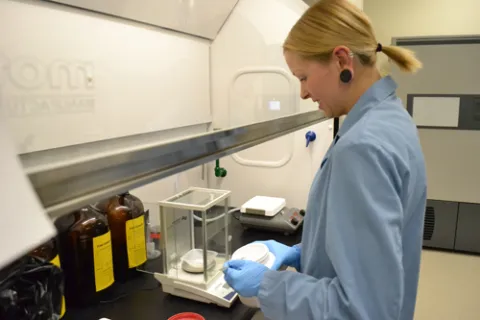About Us
About the Program
About the CCBN
About the University of Lethbridge
About Lethbridge
The $1.65 million six year NSERC CREATE Biological Information Processing (BIP) program ended March 31, 2018, and is no longer funding trainees.
An incredible opportunity exists for the next generation of scientists at the Canadian Centre for Behavioural Neuroscience (CCBN) at the University of Lethbridge.
The CCBN is home to a premier neuroscience training program, Biological Information Processing (BIP): From Genome to Systems Level, which is funded by the Natural Sciences & Engineering Research Council of Canada (NSERC) through their Collaborative Research and Training Experience (CREATE) program.
In the BIP program, students learn from an unparalleled group of mentors who are world leaders in their fields, including neuroscience, biology, biochemistry, epigenetics, cancer research and neurotechnology development. The program stands apart from the standard academic track, providing opportunities for science entrepreneurship, industry contact and the translation of science to industry.
We are currently seeking exceptional undergraduate, graduate and doctoral students, and postdoctoral fellows who are looking to play a key role in the future of science.
About the program
The NSERC CREATE Biological Information Processing Program: From Genome to Systems Level program funds trainees at the Canadian Centre for Behavioural Neuroscience at the University of Lethbridge.

The program is supported by world-class expertise and infrastructure for advanced behavioural/cognitive neuroscience study, neuroanatomy, adult neurogenesis, molecular biology, magnetic resonance imaging, epigenetics and high-density human EEG.
Each of our faculty members will contribute project supervision and course instruction in systems neuroscience to our trainees.
A very competitive stipend is offered to qualified applicants.
About the CCBN
The CCBN is the only research facility of its kind in Canada and is home to the strongest systems neuroscience program in the country.
At the CCBN, internationally acclaimed faculty and their students engage in leading-edge brain research. Students work alongside faculty members in programs that are interdisciplinary in nature, incorporating research interests in learning and memory, neural plasticity, neuroethology, motor systems, stroke, vision, cognitive neuroscience, brain development, addiction and the neurobiology of disease.
About the University of Lethbridge

Alberta’s Destination University, the University of Lethbridge is one of Canada’s most influential research universities, and is committed to providing students with an unparalleled university experience.
The U of L is recognized on the national stage as one of Canada’s top-three undergraduate institutions (2015 Macleans University Rankings) and one of Canada’s top-three undergraduate research universities (RE$EARCH Infosource, 2013).
The U of L is home to leading research centres and world-renowned faculty members who bring their research into the classroom and actively engage students in research opportunities.
The U of L offers more than 150 undergraduate programs and more than 60 graduate programs in six faculties and schools: Arts & Science, Education, Fine Arts, Health Sciences, Management and Graduate Studies. Each year, approximately 8,300 students attend the U of L, which also offers select programs on its campuses in Calgary.
The university’s liberal education foundation enables students to take a variety of subjects and discover what they are passionate about while developing essential critical thinking and analytic skills. On average, there are 32 students per class (after first year), providing a personal and supportive learning environment.
Alberta’s Destination University, the U of L is committed to providing undergraduate and graduate students with an unparalleled university experience and training the next generation of researchers and innovators.
About Lethbridge
Lethbridge, Alberta is one of Canada's sunniest cities, just a short drive from the United States, Calgary and the Rocky Mountains. The City is a friendly and growing community of 94,804 with a lot to offer newcomers (e.g. a wealth of amenities, a low cost of living, and excellent services and facilities). With a mild climate, strong economy, and close proximity to the Rocky Mountains and the U.S. border, Lethbridge has all the ingredients of a lifestyle heralded as one of the finest in Canada.
